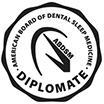Dental Crowns – Indianapolis, IN
Strengthening Smiles with Better Protection
At Indy Dental Group in Indianapolis, we know how difficult it can be to learn that even though you practice good oral hygiene at home and maintain regular dental checkups, you have developed a serious cavity. When this happens, a filling may not be enough to fix it. Fortunately, we have custom-made dental crowns we can use to strengthen your smile while ensuring optimal protection. We also provide Glidewell one-visit restorations to make the treatment process faster and more seamless. Call us today to learn how we can quickly restore your smile to its former beauty.
What is a Dental Crown?
Dental crowns are a true cornerstone of restorative care, fitting over individual teeth and providing valuable support and protection. Several materials are available for your new restoration, including metal-free, aesthetically pleasing ceramics.
While there is the option to have a traditional dental crown put in place, our Indy Dental Group team also offers Glidewell technology that allows us to produce one-visit dental crowns while you wait. This means we can reduce the number of times you visit our office and instead identify, plan, and treat your damaged tooth all in one visit.
The Dental Crown Process
To receive a traditional dental crown, we will clear out the damaged or decayed portions of your tooth before capturing digital impressions and sending the 3D model to a local laboratory. There, technicians will build your new crown while you wear a temporary restoration until it is ready for placement.
If you choose to receive a one-visit dental crown, though, our team will follow the same initial steps of clearing out your tooth and capturing digital impressions. Using Glidewell technology, we can scan your tooth and determine its size, shape, and color before sending the image to our in-house milling unit. Using a single block of ceramic, the device will fabricate your new crown while you wait.
When finished, we will give it a final polish before securing it in place and making sure it looks good and feels comfortable inside your mouth.
The Benefits of Getting a Dental Crown
Dental crowns have been around for centuries. Although the materials used to craft them have changed, the goal of protecting a damaged tooth remains their purpose. By choosing to receive a custom dental crown, you can expect to enjoy many great benefits, such as:
- A more aesthetically pleasing appearance because of the natural-looking material that is used to build the crown
- Optimal protection against future damage and/or reinfection
- A restoration that can last around 15 years depending on how well you take care of your smile
- A restoration that is highly durable and can withstand the daily wear of tear of eating and speaking
- One-visit crowns allow for faster results than traditional restorations
- You’ll enjoy a better bite force and chewing power
Dental Crowns FAQs
Are Dental Crowns Permanent?
While they’re technically not permanent (they can last up to 15 years), dental crowns are a long-term solution to protect your tooth. Be aware that once your dentist reshapes your tooth for your crown, the procedure is irreversible. Your tooth enamel cannot grow back, so that tooth will always require a crown to protect it moving forward.
Crowns protect the underlying tooth from additional damage so that it lasts much longer than it likely would have otherwise. You can ensure that your crown lasts as long as possible by taking excellent care of it with daily brushing and flossing, regular checkups at Indy Dental Group, and by wearing a nightguard or mouthguard as needed.
What is the Difference Between Traditional and Same-Day Crowns?
There are several key differences between same-day and traditional crowns. These include:
- Same-day crowns are crafted right here in the office by your dentist, not at a laboratory. This means that the same person will oversee the entire creation process from the first impression of your tooth to the final placement of the crown. This makes it easier to get a good fit and a better-looking crown.
- Same-day crowns are created and placed in the same appointment, so you don’t need a temporary crown or the dietary restrictions that come with them.
- You also don’t need to return to the dentist later for the placement of your new crown. The entire treatment can be done in a single appointment.
Do Dental Crowns Get Cavities?
While your crown itself cannot get cavities because it is made of synthetic materials, your underlying tooth still can. In fact, a crowned tooth still carries about the same risk of developing cavities as an uncrowned tooth.
Poor oral hygiene can allow bacteria and plaque to form around the gumline where the crown meets your tooth. It can then travel underneath the tooth and wreak havoc on the natural tooth. To prevent this from happening, be sure to brush and floss your teeth regularly and visit your dentist twice a year for your biannual exams and cleanings.
Does It Hurt to Get a Dental Crown?
Like fillings, your dentist will begin every crown treatment by numbing your mouth with a topical anesthetic. After your crown is placed, your tooth may feel sensitive for the next few days, particularly if you have a root canal. You can alleviate this pain with over-the-counter pain reliever or by applying cold compresses over the affected tooth. Call your dentist if the pain worsens.
Remember, getting a crown now may also prevent more pain further down the road, so it is better to have the treatment done sooner than later.



























